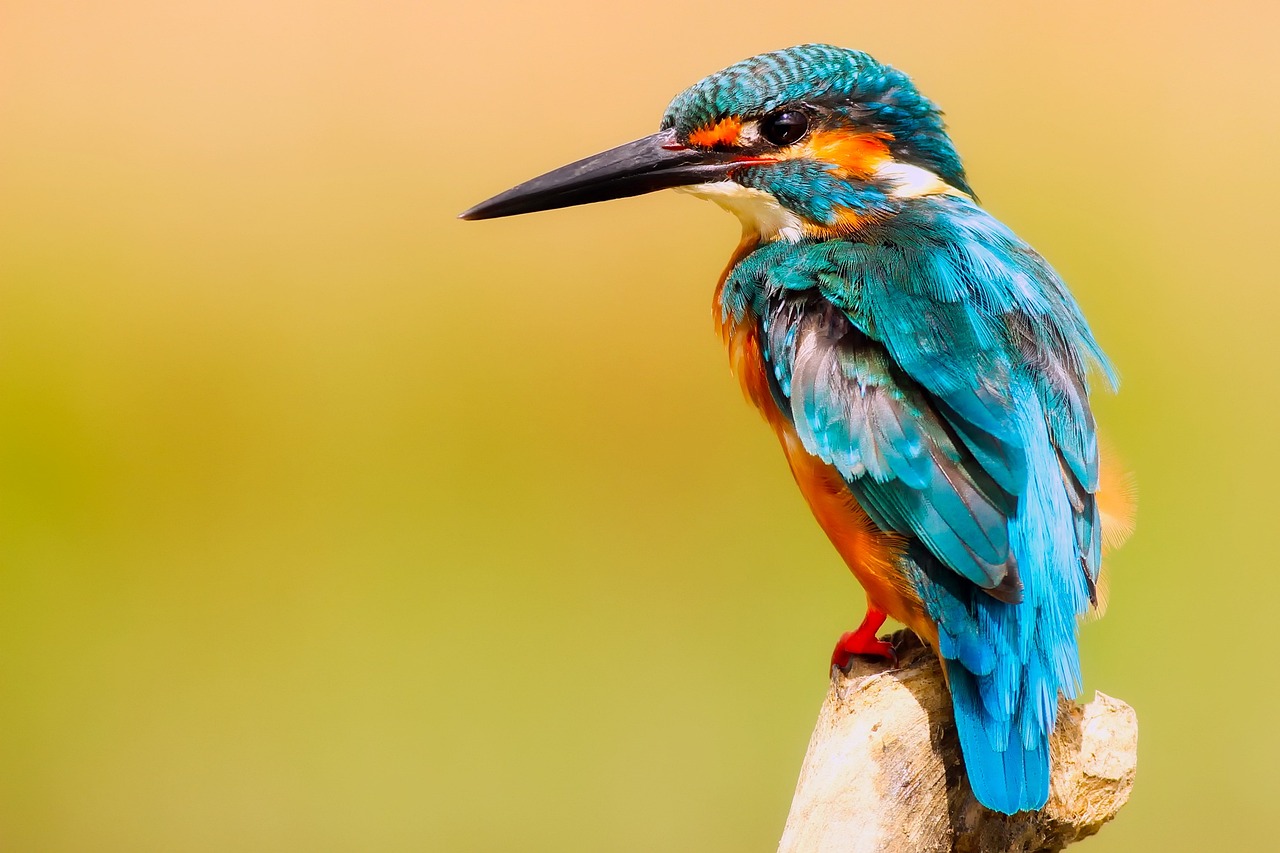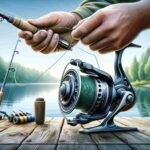Birdwatching is a beloved hobby that connects people with the beauty of avian wildlife and the natural world. The thrill of spotting a rare bird or observing the intricate behaviors of common species is a joy that many enthusiasts cherish. However, with the increasing popularity of birdwatching, it’s crucial to ensure that this hobby is practiced responsibly to minimize disturbance to birds and their habitats.
In this complete guide, I will delve into the world of responsible birdwatching, exploring the dos and don’ts, best practices, and the importance of conservation in avian wildlife observation.
The Joy of Birdwatching
Birdwatching, also known as birding, is a hobby that has captured the hearts of millions of people around the world. It offers a unique opportunity to connect with nature, exercise patience, and foster a deeper understanding of the avian creatures that share our planet. Whether you’re an experienced birder or a novice, the thrill of observing birds in their natural habitat is a universal delight.
The Awe of Avian Diversity
Birds are incredibly diverse, with over 10,000 species worldwide, each adapted to specific habitats and ecological niches. From the tiny hummingbird with its iridescent plumage to the majestic bald eagle soaring through the skies, the avian world never ceases to amaze with its variety and beauty. Birdwatching allows us to witness this diversity up close and personal.
A Hobby for All Ages
One of the remarkable aspects of birdwatching is that it is a hobby accessible to people of all ages and backgrounds. Whether you’re a child exploring the wonders of nature with your family or a retiree seeking tranquility in the great outdoors, birdwatching provides a meaningful and engaging pastime. All you need is a pair of binoculars, a field guide, and a curious spirit.
The Need for Responsible Birdwatching
While birdwatching can be a rewarding and educational experience, it’s essential to recognize the potential negative impacts it can have on avian wildlife and their habitats. Irresponsible birdwatching can disturb birds, disrupt their natural behaviors, and even harm their populations. Therefore, practicing responsible birdwatching is not just an option—it’s an ethical obligation.
Disturbance and Its Consequences
Birds are highly sensitive to disturbances in their environment. Even seemingly harmless actions, such as getting too close to nesting birds or making loud noises, can cause stress and anxiety for these animals. In extreme cases, repeated disturbances can lead to abandoned nests, reduced breeding success, and declining populations.
Protecting Critical Habitats
Many bird species rely on specific habitats for breeding, feeding, and shelter. Human activities, including birdwatching, can inadvertently damage these habitats through trampling, littering, and other disruptive behaviors. Responsible birdwatching involves taking steps to minimize our impact on these fragile ecosystems.
Ethical Considerations
In addition to ecological concerns, ethical considerations play a significant role in responsible birdwatching. Observing birds should never come at the expense of their well-being. Respecting the birds and their habitats is a fundamental principle that all birdwatchers should embrace.
Best Practices for Responsible Birdwatching
Now that we understand the importance of responsible birdwatching, let’s explore some best practices that can help ensure a positive and ethical birdwatching experience.
1. Educate Yourself
Before heading out on a birdwatching adventure, take the time to educate yourself about the species you’re likely to encounter. Familiarize yourself with their habits, habitats, and seasonal movements. A good field guide and reputable birding apps can be invaluable resources.
2. Use Appropriate Equipment
Invest in a good pair of binoculars and, if necessary, a spotting scope. High-quality optics can help you observe birds from a distance without causing them undue stress. Avoid using flash photography or playback of bird calls, as these can be disruptive.
3. Keep Your Distance
Respect the personal space of birds. Use binoculars and your optics to get a closer look rather than approaching too closely. Avoid getting too close to nesting sites, as this can cause parents to abandon their eggs or chicks.
4. Stay Quiet and Still
Birds have acute hearing and can detect even subtle noises. Keep conversations hushed and movements slow and deliberate to avoid startling them. The more unobtrusive you are, the better your chances of observing natural behaviors.
5. Stay on Marked Trails
When birdwatching in natural areas, stick to designated trails and paths to minimize habitat disruption. Avoid trampling vegetation, disturbing nests, or leaving behind litter. Leave no trace of your visit.
6. Time Your Visits Carefully
Consider the time of day and season when planning your birdwatching outings. Early mornings and late afternoons are often the best times to observe birds when they are most active. Be mindful of breeding seasons and avoid disturbing nesting birds.
7. Join Local Birding Groups
Birding with experienced individuals or local birdwatching groups can be a great way to learn and practice responsible birdwatching. Seasoned birders can provide guidance and share their knowledge while helping you develop good habits.
8. Be Patient and Respectful
Birdwatching requires patience, as birds may not always appear when and where you expect them. Remember that they are wild animals, and it’s a privilege to observe them. Respect their needs and boundaries.
9. Report Disturbances
If you witness others engaging in disruptive or unethical birdwatching behavior, consider reporting it to local authorities or organizations responsible for wildlife conservation. Your vigilance can help protect avian species and their habitats.
10. Contribute to Conservation
Consider giving back to the avian world by supporting organizations and initiatives dedicated to bird conservation. Volunteering your time, donating to conservation projects, or participating in citizen science programs can make a positive impact.
The Role of Citizen Science in Responsible Birdwatching
Citizen science plays a vital role in birdwatching and avian conservation efforts. By contributing your observations and data to scientific projects, you can help researchers track bird populations, monitor migration patterns, and assess the health of avian ecosystems. Here are some ways you can get involved:
1. eBird
eBird is a popular online platform that allows birdwatchers to record their sightings and contribute to a global database of bird observations. Researchers use this data to track bird populations and inform conservation efforts.
2. Christmas Bird Count
The Christmas Bird Count is an annual event organized by the National Audubon Society. Birdwatchers of all levels participate by counting birds within designated circles during a specified period. The data collected helps researchers monitor long-term trends in bird populations.
3. Project FeederWatch
Project FeederWatch invites bird enthusiasts to monitor and record the birds that visit their backyard feeders during the winter months. This citizen science project provides valuable insights into bird feeding habits and distribution.
4. NestWatch
NestWatch encourages participants to monitor and report on the nesting activities of birds. By tracking the success and failures of nests, researchers can better understand the challenges birds face during the breeding season.
5. Bird Banding
Bird banding involves placing small, individually numbered bands on the legs of birds to track their movements and survival rates. While this requires specialized training and permits, it is a valuable way to contribute to scientific research.
6. BioBlitz Events
BioBlitz events bring together experts and citizen scientists to conduct intensive surveys of biodiversity in specific areas. Birdwatchers can participate in these events to contribute their observations and learn from experts.
Bird Photography and Ethical Considerations
Bird photography is a popular aspect of birdwatching, allowing enthusiasts to capture the beauty and behavior of avian species. However, it comes with its own set of ethical considerations, especially when it comes to the well-being of the birds.
1. Use Long Lenses
Invest in long lenses for your camera to capture high-quality photos without getting too close to the birds. This reduces the risk of disturbing them during their natural activities.
2. Avoid Nest Disturbance
Never approach or photograph nesting birds at close range. The stress caused by your presence can lead to nest abandonment, endangering eggs or chicks.
3. Limit Flash Photography
Using a flash can startle and distress birds, potentially causing them to flee their nests or foraging areas. Avoid flash photography whenever possible, especially in low-light conditions.
4. Maintain a Low Profile
When setting up your photography equipment, strive to be inconspicuous. Use blinds or natural cover to hide from the birds, allowing you to observe and photograph them without disturbance.
5. Prioritize Bird Welfare
Remember that the welfare of the birds should always come first. If your presence appears to be causing stress or disruption, consider moving away or abandoning your photography efforts.
Promoting Avian Conservation
Responsible birdwatching goes hand in hand with avian conservation efforts. By practicing ethical birdwatching and contributing to conservation initiatives, bird enthusiasts can play a crucial role in protecting avian species and their habitats.
1. Support Bird-Friendly Legislation
Advocate for legislation that protects critical bird habitats and addresses threats such as habitat destruction, pollution, and climate change. Joining or supporting organizations dedicated to bird conservation can help amplify your voice.
2. Get Involved in Habitat Restoration
Participate in local habitat restoration projects by volunteering your time and resources. Restoring natural habitats benefits not only birds but also countless other species that rely on healthy ecosystems.
3. Educate Others
Share your passion for responsible birdwatching and avian conservation with friends, family, and your community. Raising awareness about the importance of protecting birds and their habitats can inspire others to take action.
4. Support Conservation Organizations
Consider making financial contributions to organizations that work to protect birds and their environments. These organizations rely on donations to fund research, advocacy, and conservation initiatives.
5. Mentor New Birdwatchers
If you’re an experienced birder, consider mentoring beginners and teaching them the principles of responsible birdwatching. Encourage them to develop good habits from the start.
The Global Impact of Responsible Birdwatching
Responsible birdwatching is not just a local or regional concern; it has a global impact. The following examples illustrate how ethical birdwatching practices can contribute to avian conservation worldwide:
1. Protecting Migratory Birds
Many bird species undertake incredible migratory journeys spanning thousands of miles. By minimizing disturbances during their stopover points and wintering habitats, birdwatchers can help ensure the survival of these remarkable travelers.
2. Conserving Endangered Species
Responsible birdwatching can aid in the conservation of endangered species. By supporting organizations that work to protect these birds and their habitats, birdwatchers can contribute to their preservation.
3. Supporting Scientific Research
The data collected by citizen scientists and responsible birdwatchers play a vital role in scientific research. This information helps researchers understand bird behavior, population dynamics, and the impact of environmental changes.
4. Raising Awareness
Responsible birdwatching promotes awareness of the challenges facing avian wildlife and their habitats. Educated birdwatchers are more likely to engage in advocacy and conservation efforts to protect these species.
Conclusion: Birdwatching as a Force for Good
Birdwatching is a source of joy, wonder, and connection with the natural world. When practiced responsibly, it becomes a force for good, contributing to avian conservation and the preservation of our planet’s biodiversity. By following the principles of responsible birdwatching, sharing our knowledge, and supporting conservation efforts, we can ensure that future generations can experience the magic of observing birds in their natural habitats. Together, we can be stewards of avian wildlife, fostering a world where birds thrive, and their songs continue to grace our skies.
As birdwatchers, let us embrace our role as ambassadors for the avian world, dedicated to enjoying and protecting these magnificent creatures responsibly and ethically. Through our collective efforts, we can ensure that the skies remain filled with the beauty and wonder of birds for generations to come.










